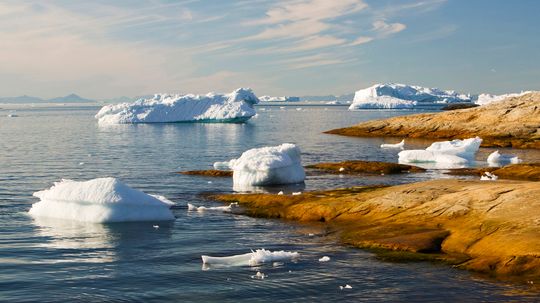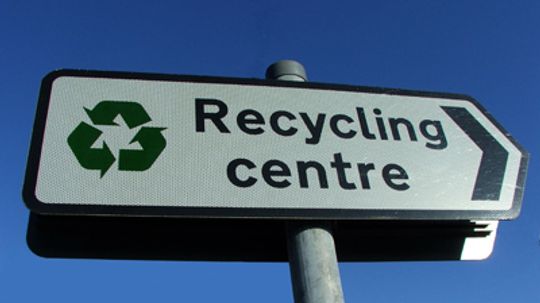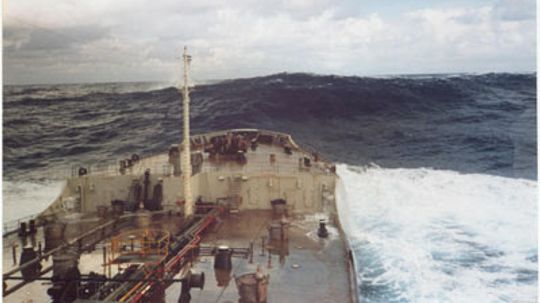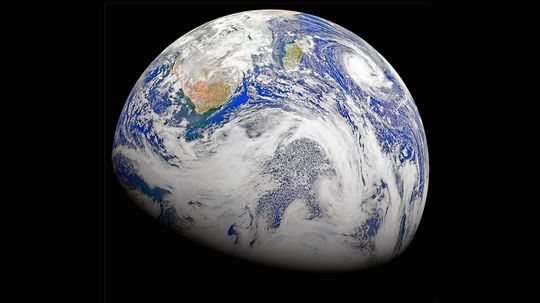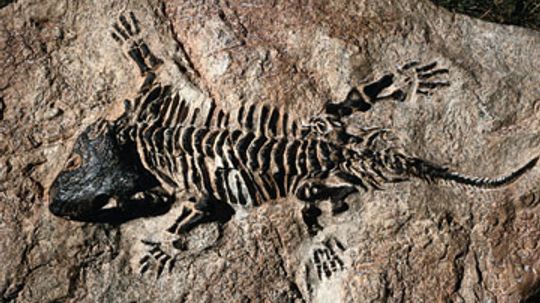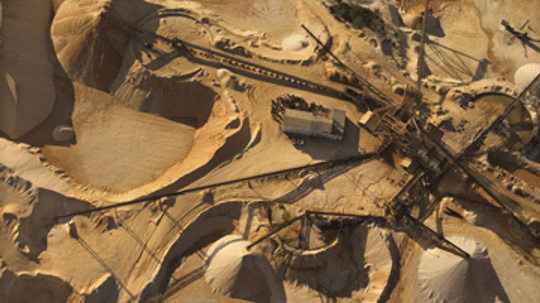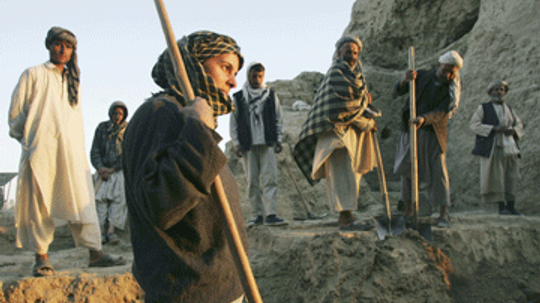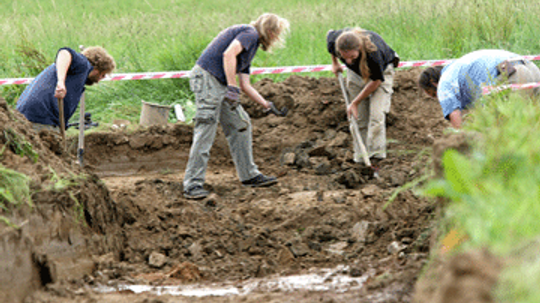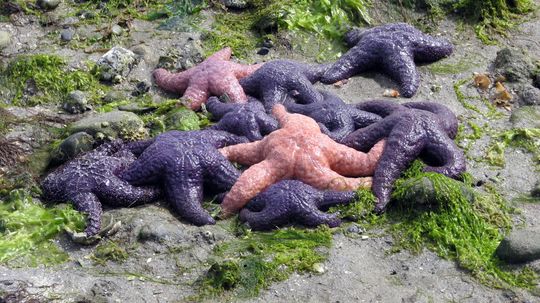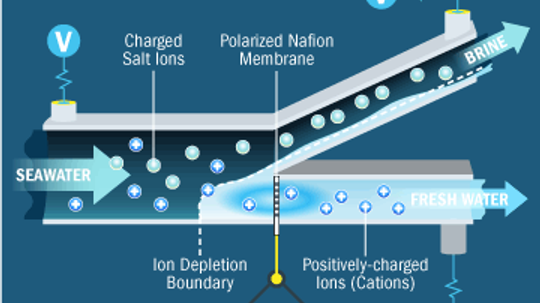Environmental Science
The environment is truly a thing of beauty and should be protected whenever possible. What can we do to save the environment, and what new technology is available to help us?

The Fish Doorbell Isn't a Joke ... Seriously
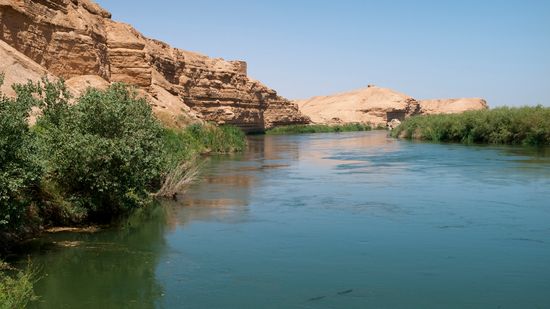
The Euphrates River, at the 'Cradle of Civilization,' Is Drying Up
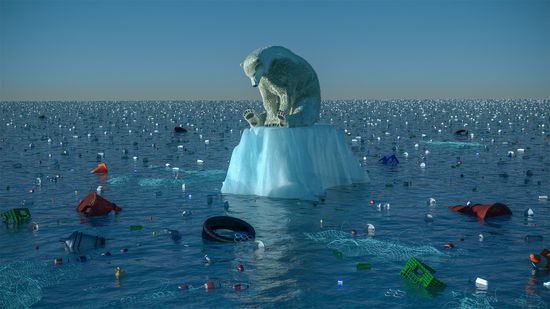
Study Says 2035 Is Climate Change Point of No Return
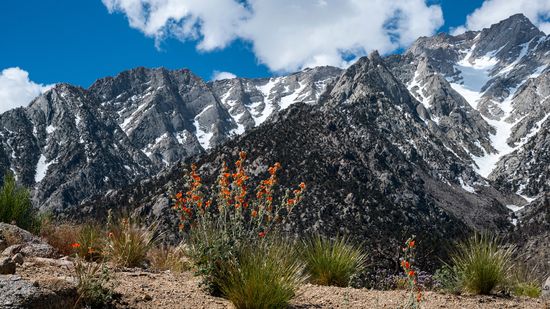
What State Has the Most Mountains in the U.S.? 8 Peak Records
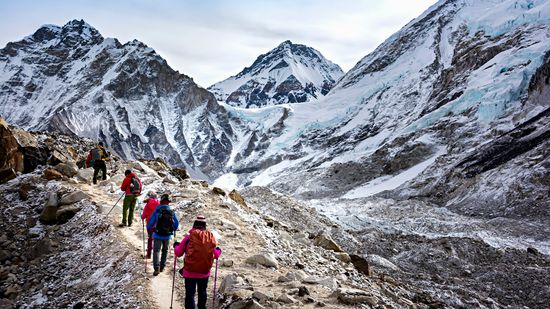
The Most Dangerous Mountain to Climb (and 14 Giving Steep Competition)

15 Types of Gemstones to Add a Little Sparkle to Your Life

How Many Birds Are Killed by Wind Turbines, Really?

How a Lithium Mine Works and Impacts Local Communities
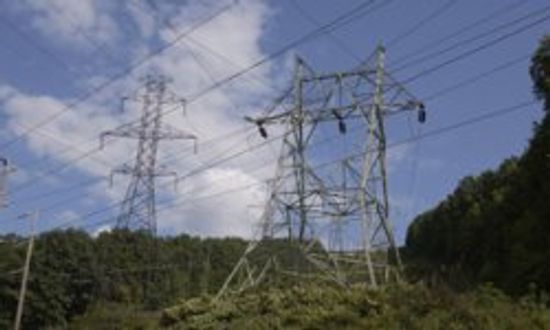
How to Sell Electricity Back to the Grid

The Worst Air Quality in the World Is in Mountainous Terrain

The World Hits 8 Billion People; Is That Good or Bad?

Quiz: Can You Tell Climate Change Fact From Fiction?

6 Most Futuristic Cities Powered by Renewable Energy

Top 5 Green Robots

5 Things to Consider When Building a Solar-powered Home
Learn More / Page 13
Oil is a nonrenewable resource. Have we found all the oil there is to find, or is there more out there somewhere? What's the best way to wean ourselves from our oil dependency?
By Josh Clark
The waste collectors threw your recyclables into one big bin on their truck. How do you know your recyclables are being recycled? And what happens to them next?
By Josh Clark
Global warming has become a common term, but it's not commonly understood. Learn about global warming and the greenhouse effect.
Advertisement
We'd be up a creek without Earth's atmosphere and the greenhouse effect it provides, but it turns out that an overactive greenhouse effect can result in a similarly devastating outcome.
The Georgia Aquarium is the world's largest aquarium. How did they build habitats for all the animals, and what does it take to keep them fed and healthy? Find out about the aquarium and learn about the animals that call it home.
You may remember the blackout that occurred on Aug. 14, 2003. It was the biggest in U.S. history. And just like every major blackout, it raised a lot of questions about how the power-distribution system works.
Recycling is a pretty simple concept: take something that isn't useful anymore and make it into something new. Learn about the process and the good and bad of recycling.
Advertisement
While actual footprints measure size, weight and speed, carbon footprints measure how much carbon dioxide (CO2) we produce in our daily lives. Do you know how big your carbon footprint is?
By Sarah Dowdey
Eco-conscious people purchase carbon offsets to help reduce worldwide greenhouse gas emissions. But do offsets actually help, and what does Pink Floyd have to do with them?
By Sarah Dowdey
Also known as "freak waves," these colossal walls of water have been alleged to be in the range of 100 feet or more. Learn what separates rogue waves from other large waves, what causes them and find out about some of the better-known rogue wave incidents.
You probably know that the North Pole does not stay in the same spot. The North and South Poles can actually change positions. What causes this? Find out in this article.
Advertisement
Climate change is the defining issue of our time, and we are at a defining moment of history. What can you do to make a difference? We've got 10 tips for you.
By Katie Lambert & Sarah Gleim
A map is a type of language, a graphic way of representing information, whether it's to show population density or tell you how to get from Point A to Point B. Here's how they're made.
By Tracy V. Wilson & Alia Hoyt
A sculpted mammoth shows visitors to the La Brea Tar Pits what these ancient animals might have looked like, but the pits themselves have looked the same for thousands of years. How did they form, and what discoveries lie beneath the sticky surface?
The ozone layer prevents much of the sun's ultraviolet light from reaching the Earth. But there's a problem: a gaping hole the size of Antarctica. What can we do about it?
Advertisement
Artificial light lets us stay up through the night or feel secure in the dark. But those midnight noons push our bodies out of whack and confuse the natural world. Is there a fix for light pollution?
Famine might bring to mind historical tragedies or modern media coverage of tiny children with swollen bellies. But how does the unimaginable -- a widespread loss of food -- actually happen?
At best, fossilization is a long and tricky process that mineralizes an occasional Tyrannosaurus rex or other extraordinary find. How has that affected our chances at charting a model of life itself?
By Robert Lamb
It's not so much about time as it is about money. What dictates how long an archeological team is permitted to dig at a particular site?
Advertisement
Each country and each region within each country has its own laws regarding the right to cultural property. So, how do you know which artifacts belong to the government and which are "finders keepers"?
In "Indiana Jones and the Last Crusade," Dr. Jones battles the Nazis for the Holy Grail. Did the Nazis really have an interest in archaeology? And if so, what fueled it?
In "The Raiders of the Lost Ark," Indiana Jones competes with grave-robbing Nazis for the lost Ark of the Covenant. But what defined Dr. Jones as legit and the Nazis as grave robbers?
Without its keystone, a Roman aqueduct collapses. Does the same travesty befall an ecosystem when a keystone species goes missing from the ecological equation?
Advertisement
Desalination has long been considered too expensive and too energy-intensive to make much sense. But with newer technologies, that line of thinking is changing. What are some of the most interesting desalination projects on the planet?
The ever-changing price of a barrel of oil has a lot to do with what we pay for gasoline at the pump. But do you know the four major factors that contribute to the price of oil?



